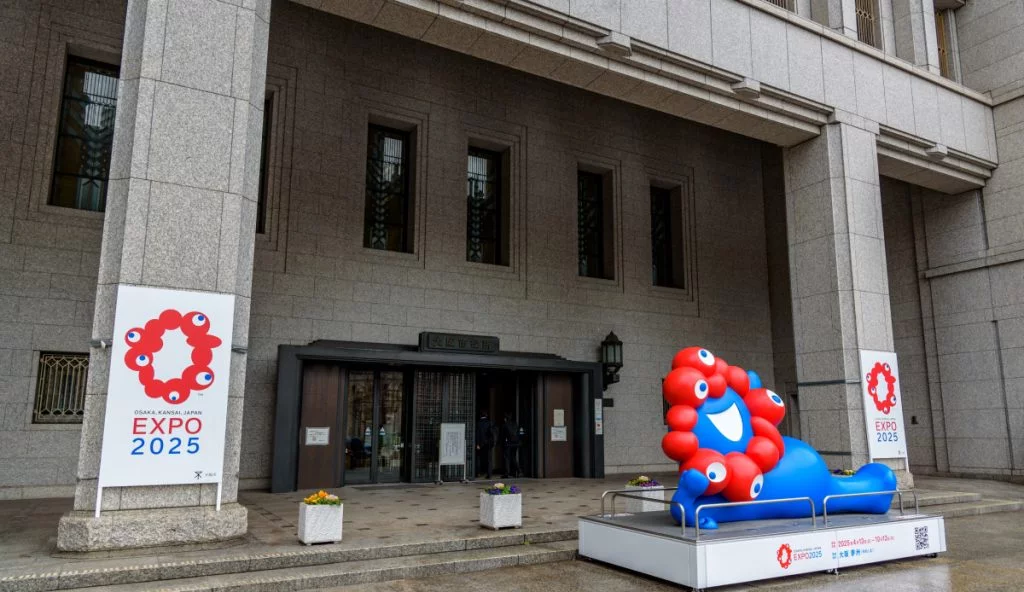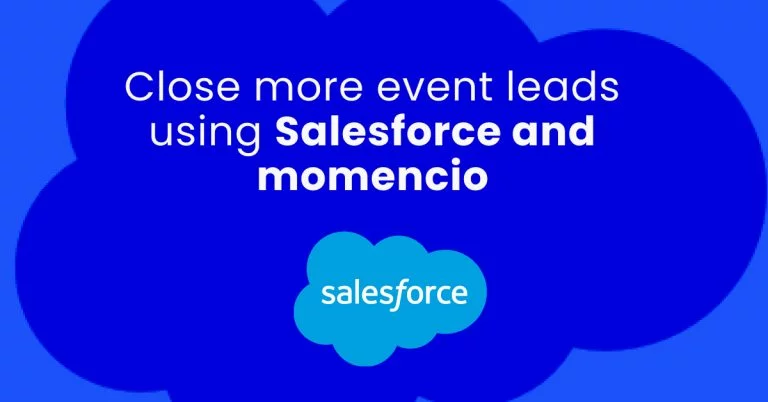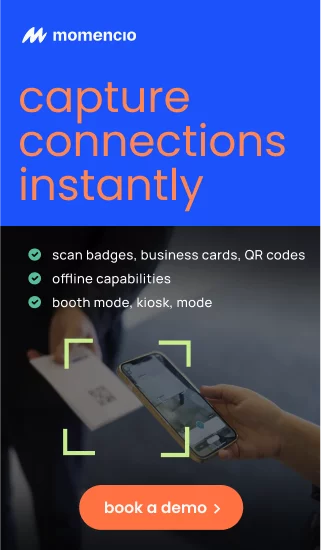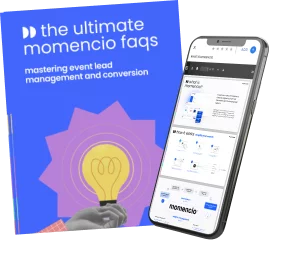Trade shows vs conferences vs expos vs conventions: Navigating the complex world of industry gatherings requires a clear understanding of the unique formats and goals of trade shows, conferences, expos, and conventions. Each event type serves a distinct purpose and offers different opportunities for businesses looking to expand their reach and influence. For instance, trade shows are highly targeted platforms for companies to showcase new products within specific industries, attracting a B2B audience focused on networking and sales. In contrast, conferences center around the dissemination and discussion of information, often featuring a series of speakers and aiming to foster learning and thought leadership.
Meanwhile, expos open up the floor to a broader public audience, highlighting innovations and allowing companies to increase consumer awareness and engagement. Conventions merge networking with fan or professional gatherings, creating a vibrant atmosphere of exchange and community building around specific interests or sectors. By understanding these nuances, professionals can strategically select the right type of event to maximize their objectives, whether they aim to generate leads, share knowledge, or build community.
Are trade shows and industry events really worth your time? This article explores the defining characteristics of trade shows, conferences, expos, and conventions, providing you with the insights needed to navigate these events successfully. With practical tips on maximizing return on investment and enhancing participant engagement, you’ll learn how to tailor your approach to each event’s unique environment and audience.

Key differences and insights: trade shows vs conferences vs expos vs conventions
What are trade shows?
Definition and primary focus
Trade shows are specialized events typically designed for industry insiders. These events provide a platform for companies to showcase new products, services, and innovations in a specific industry segment. Unlike other types of industry gatherings, trade shows focus primarily on B2B relationships, facilitating a highly targeted environment for business leaders, industry professionals, and decision-makers to connect and discuss potential deals and partnerships.
The main aim of a trade show is to gather members of a particular industry in a single space to demonstrate the latest in market offerings, explore new business opportunities, and engage in networking that is likely to result in business transactions. This concentrated assembly of industry-specific vendors and buyers offers a unique opportunity for exhibitors to increase brand visibility, capture leads, and directly interact with potential and existing customers.
Typical formats and participant goals
Trade shows are usually organized around a central exhibition area where companies set up booths or displays. These setups are designed to attract attendees and facilitate face-to-face interactions. Exhibitors might use a variety of tactics to draw in attendees, including live demonstrations, interactive displays, and free samples. High-quality booths often feature cutting-edge technology and innovative design elements to stand out among competitors.
The typical participant goals at a trade show can vary depending on their role:
- Exhibitors aim to generate leads, strengthen their industry presence, launch new products, and directly engage with potential customers. They are also keen on checking out competitors and networking with industry peers to gauge market trends.
- Attendees, who often include wholesalers, retailers, and other key players within the industry, come to trade shows to learn about new products, evaluate suppliers, and make purchasing decisions. They are looking for solutions that can help streamline operations, increase profitability, and keep them ahead of technological advances within their sectors.
- Organizers focus on facilitating connections between exhibitors and attendees, providing a seamless experience that enhances the value of the event for all participants. Their goal is to ensure high engagement levels, deliver logistical support, and maintain a reputation for hosting successful industry-specific events.
Understanding these aspects of trade shows can help businesses and professionals tailor their strategies to leverage the unique opportunities these events offer effectively. By focusing on targeted networking and engagement, exhibitors can maximize their impact, while attendees can gain invaluable insights into industry trends and emerging technologies. Trade shows serve as a critical nexus for commerce and innovation within industries, making them essential for any company looking to maintain or grow its market presence.
- Explore our article on how to Transform Your Trade Show Strategy with Integrated Lead Capture Tools
Exploring conferences
Core characteristics of conferences
Conferences are designed primarily as informational and educational gatherings, focusing on the dissemination and discussion of new knowledge, research findings, industry trends, and best practices. Unlike trade shows, which are product-centric, conferences are content-centric, offering a platform for thought leadership, professional development, and scholarly interactions.
At a conference, the agenda is typically filled with keynote speeches, panel discussions, workshops, and breakout sessions. These components are orchestrated to foster learning, inspiration, and dialogue among attendees. The environment at a conference is conducive to deep dives into specific topics, with experts and thought leaders sharing insights that are not only current but also forward-thinking.
Key objectives for attendees and organizers
The objectives of attending or organizing a conference can be diverse but are generally aligned with professional growth and network expansion:
- Attendees seek to gain knowledge, find solutions to industry challenges, and connect with peers. They come to conferences to absorb expert knowledge, participate in discussions, and update themselves with the latest trends and technologies that can impact their fields of work. Conferences provide them with the tools and insights necessary to enhance their professional skills and advance their careers.
- Speakers and Presenters aim to share their expertise, promote their work, and establish themselves as thought leaders in their respective fields. By presenting at conferences, they gain visibility and credibility, which can lead to further professional opportunities, collaborations, and research advancements.
- Organizers of conferences strive to bring together diverse groups of professionals to facilitate knowledge exchange and networking. Their goal is to create an event that is rich in content and offers valuable learning and networking opportunities that attract attendees year after year. Successful conferences are those that manage to address the current needs and interests of their target audience, providing a balanced mix of educational content, networking opportunities, and interactive sessions.
Conferences play a crucial role in the professional landscape by catalyzing education, innovation, and collaboration. They are essential for professionals looking to stay competitive in their fields by keeping up with rapid advancements and networking with other thought leaders. For organizers, ensuring that the conference addresses the evolving interests and challenges of its audience is vital to its ongoing relevance and success.
Understanding expos
Definition and role of expos
Expos, or exhibitions, are large-scale events typically open to the public, designed to showcase a wide array of products and innovations across various industries. Unlike trade shows, which are industry-specific and often limited to industry members, expos cater to both B2B and B2C audiences and are characterized by their broader consumer focus. These events serve as a platform for businesses to directly interact with consumers, demonstrate their products, and gauge public reaction to new offerings.
The primary role of expos is to foster consumer engagement and brand exposure. Companies participate in expos to reach out to new markets, launch products to a broader audience, and create buzz and visibility around their brands. For many businesses, expos are an opportunity to test market products before a wider release or to strengthen their position within a competitive landscape.
Typical formats and participant goals
Expos are often more diverse in their setup and offerings than other event types. They might include interactive displays, demonstrations, workshops, and entertainment segments alongside traditional exhibition booths. This variety ensures that expos are not only informative but also engaging for attendees of all ages and interests.
Participant goals at expos vary widely:
- Exhibitors aim to increase brand visibility, introduce new products, and interact face-to-face with end consumers. They often use expos to conduct market research by gathering feedback directly from event-goers. This direct consumer interaction can provide valuable insights that are less accessible at industry-centric trade shows.
- Attendees visit expos to discover new products, learn about trends, and enjoy the interactive experiences on offer. For many, expos are an opportunity to engage with brands directly, gain special offers, and purchase products at event-exclusive prices.
- Organizers of expos focus on creating an engaging atmosphere that attracts a large number of visitors. Their success metrics often include attendee numbers, the satisfaction rate of exhibitors and visitors, and the overall buzz created around the event. Organizers aim to balance commercial opportunities for exhibitors with entertainment and value for attendees, ensuring that the expo is a must-visit event in the community or industry calendar.
Expos play a critical role in businesses’ consumer engagement strategies. By offering a dynamic platform for product demonstration and direct consumer interaction, expos help companies enhance their brand presence and market reach. For attendees, expos provide a unique opportunity to explore a variety of products and services in a vibrant, interactive setting. As such, expos are invaluable for businesses looking to make a significant impact on both industry insiders and the general public.
Decoding conventions
What sets conventions apart
Conventions are events typically centered around particular interests, industries, or fandoms, bringing together like-minded individuals and communities to celebrate, learn, and network. Unlike trade shows or expos, which are often product-focused, conventions are more community and experience-focused, catering to enthusiasts, hobbyists, and professionals who share a common passion or field of expertise.
The primary purpose of conventions is to foster community engagement, provide educational content, and facilitate networking opportunities among attendees who are deeply invested in the convention’s central theme. These events can range from comic book conventions and sci-fi gatherings to professional associations and academic meetings.
Common themes and attendee experiences
Conventions often feature a mix of panels, keynote addresses, workshops, and networking events tailored to the interests and needs of the community they serve. Additionally, they may include exhibitions, autograph sessions, costume contests, and other entertainment activities that enhance the community experience and engagement.
Attendee goals at conventions include:
- Community Building: Attendees come to conventions to meet others who share their interests and passions. These events provide a unique opportunity to form friendships, join discussions, and become part of a community that extends beyond the event itself.
- Education and Professional Development: For professional conventions, attendees aim to gain insights, learn new skills, and stay updated on the latest trends and advancements in their fields. These conventions serve as critical platforms for professional growth and continuous learning.
- Entertainment and Enjoyment: Particularly at fan-based conventions, attendees are there to have fun. Engaging with content creators, participating in activities, and immersing themselves in the event’s theme are key aspects of their experience.
Organizer objectives
Organizers of conventions strive to create an inclusive environment that caters to both newcomers and long-time enthusiasts. Their goals include:
- Ensuring Content Relevance: Organizers must curate sessions and activities that resonate with the interests and aspirations of their audience, making sure the content is both engaging and valuable.
- Facilitating Networking: Creating spaces and opportunities for networking is essential, especially at professional conventions where building industry connections can lead to future collaborations and job opportunities.
- Enhancing Participant Engagement: Organizers work to keep the energy high and ensure that attendees have a memorable experience that encourages them to return in future years.
Conventions offer a unique blend of education, networking, and entertainment tailored to specific communities or industries. They play an essential role in building and maintaining the vitality of these communities, offering a space where members can engage deeply with their shared interests. For businesses and professionals, understanding how to leverage conventions within their niche can unlock powerful opportunities for engagement and growth.
Comparative analysis – trade shows vs conferences vs expos vs conventions
In the diverse world of industry gatherings, each event type—trade shows, conferences, expos, and conventions—has its unique characteristics and objectives. Understanding the differences and similarities between these events can help professionals and businesses choose the right type for their specific goals. This section provides a comparative analysis to highlight these distinctions and guide decision-making.
Trade shows vs conferences
Trade shows are predominantly business-to-business (B2B) events focused on industry-specific showcases and networking. They are ideal for businesses looking to launch new products, generate leads, and establish direct trade relationships within their industry. The primary audience includes industry professionals, buyers, and company representatives.
Conferences, on the other hand, prioritize information exchange and professional development. They are structured around keynote speeches, sessions, and panels that cover industry trends, innovative research, and best practices. Conferences cater to professionals seeking knowledge enhancement and networking opportunities with peers and thought leaders in their field.
Key differences:
- Focus: Trade shows are product and sales-focused, while conferences are knowledge and education-focused.
- Attendees: Trade shows attract buyers and sellers with specific business intentions, whereas conferences attract individuals looking to learn and network professionally.
- Outcome Goals: The primary outcome of trade shows is business transactions and partnerships, while conferences focus on knowledge dissemination and professional growth.
Conferences vs. conventions
While conferences are professional and educational, conventions blend professional content with community and fan-based elements. Conventions may focus on a particular profession or hobby and often include a mix of academic content and entertainment activities designed to engage a community around shared interests.
Key differences:
- Community Engagement: Conventions are highly community-oriented, offering a platform for like-minded individuals to celebrate shared passions. Conferences, while also providing networking opportunities, primarily focus on professional and educational development.
- Content Variety: Conventions often have a broader range of activities, including workshops, exhibitions, and entertainment, while conferences focus on seminars, talks, and professional panels.
Expos vs. trade shows
Expos are similar to trade shows in that they showcase products and services but are usually open to the public and cover a broader range of topics. These events are great for consumer engagement and brand exposure to a general audience.
Key differences:
- Audience: Trade shows target industry professionals and business stakeholders, whereas expos are accessible to the general public, including consumers.
- Exhibitor Goals: In expos, the emphasis is on brand visibility and consumer interaction, while trade shows focus on B2B relationships and sales generation.
Choosing the correct type of event depends on a company’s objectives. If the goal is to find business partners or showcase products to industry insiders, a trade show might be most appropriate. For educational purposes and industry knowledge, a conference is preferable. If engaging with the consumer directly and enhancing brand recognition is the goal, participating in an expo would be ideal. Lastly, for fostering community and fan engagement, hosting or joining a convention would be beneficial. Understanding these differences enables businesses and professionals to strategically select the most suitable events to meet their specific needs, maximizing their investment in time and resources.
Choosing the right event for your business goals
Selecting the right type of industry gathering—whether a trade show, conference, expo, or convention—can be pivotal in achieving your business’s strategic objectives. This section guides how to align your goals with the appropriate event type and offers tips on making an informed decision.
Factors to consider:
- Business Objectives:
- Lead Generation: If the primary goal is to generate business leads, trade shows are typically the most suitable due to their industry-specific focus and professional networking opportunities.
- Brand Awareness: For companies looking to enhance brand visibility and consumer interaction, expos provides a broad platform that caters to both B2B and B2C segments.
- Educational Opportunities: If the aim is to gain industry knowledge or to keep up with the latest trends and innovations, conferences offer a rich environment for learning and professional development.
- Community Engagement: Conventions are the ideal choice for building or reinforcing community ties and fan engagement within a specific niche.
- Target Audience:
- Determine who the primary audience for your products or services is. Trade shows and expos often attract different types of attendees, with trade shows being more industry-focused and expos being more consumer-focused.
- Identify whether your audience is more likely to appreciate detailed discussions and educational content (conferences) or interactive and entertaining experiences (conventions).
- Budget and Resources:
- Consider the cost associated with participating in each type of event, including booth setup, staffing, marketing materials, and travel expenses. Trade shows and expos might require a larger budget due to their scale and the need for elaborate booth designs.
- Assess the human resources needed to effectively manage the event presence, including preparations and follow-up activities.
- ROI Measurement:
- Decide on your criteria for measuring success. For trade shows and expos, ROI might be measured by the number of leads or direct sales generated. For conferences and conventions, the success metrics include the number of new contacts made, partnerships formed, or the amount of valuable content gathered.
Tips on selecting the right event type:
- Research Past Event Success: Look into previous editions of the event to assess its reputation and the type of attendees it attracts. Reviews and testimonials from past exhibitors and attendees can provide insights into the event’s effectiveness and suitability for your goals.
- Understand the Event’s Scope and Scale: Larger events may offer greater exposure but can also be more competitive and expensive. Smaller, niche events might offer more targeted networking opportunities and a closer community feel.
- Evaluate Alignment with Marketing Strategy: Ensure that the event aligns with your overall marketing strategy and branding. The event should complement your other marketing activities and contribute to your long-term business objectives.
- Consult with Industry Peers: Networking with peers who have attended or exhibited at the events can provide practical insights and help you gauge the potential benefits for your business.
Choosing the correct type of event is crucial for optimizing your investment in industry gatherings. By aligning the event’s characteristics with your business goals, target audience, and available resources, you can significantly enhance your chances of success. Whether boosting brand awareness, generating leads, fostering community, or expanding industry knowledge, selecting a suitable event can empower you to achieve your objectives more effectively and efficiently.
Read our article on Designing a Trade Show Booth: Strategies That Engage and Convert
Maximizing ROI in each event type
Achieving a strong return on investment (ROI) from participating in trade shows, conferences, expos, and conventions requires a strategic approach tailored to the unique characteristics of each event type. This section provides strategies for maximizing ROI for each kind of industry gathering, ensuring that businesses can effectively leverage their event participation.
Strategies for trade shows:
- Pre-Event Planning:
- Conduct thorough research on the event attendees and tailor your presentations and displays to meet the specific interests of this audience.
- Schedule meetings in advance with key prospects and industry influencers who will be attending the event.
- Effective Booth Design:
- Create an engaging and interactive booth space that stands out. Use high-quality visuals, interactive demos, and live presentations to draw attendees in.
- Ensure your booth staff is well-trained and ready to answer any questions, providing detailed product demonstrations and capturing lead information efficiently.
- Post-Event Follow-Up:
- Quickly follow up with leads gathered at the event. Use personalized communications to remind them of their interaction at your booth and the solutions you offer.
- Measure the success of your trade show efforts by tracking lead conversion rates and the overall sales generated from these leads.
Strategies for conferences:
- Content Contribution:
- Secure speaking opportunities or contribute to panel discussions to establish your brand as a thought leader in your industry.
- Provide valuable and insightful content that addresses current industry challenges or trends, enhancing your credibility.
- Networking:
- Utilize networking sessions, lunches, and breaks to connect with other professionals. Have a clear strategy for the type of connections you want to make.
- Collect contact information and make notes on discussions to personalize follow-up communications.
- Leverage Learning:
- Implement the knowledge gained from sessions to improve your business practices and offerings.
- Share key takeaways with your team and integrate innovative ideas into your business strategy to enhance operational effectiveness.
Strategies for expos:
- Consumer Engagement:
- Brand Exposure:
- Use large, visually appealing displays and digital signage to increase brand visibility.
- Collect attendee data for future marketing campaigns and maintain engagement through social media channels by encouraging visitors to share their experience at your booth.
Strategies for conventions:
- Community Building:
- Participate in or sponsor activities and sessions that resonate with the convention’s theme and your brand values to foster community ties.
- Offer exclusive merchandise or content that is tailored to the interests of the community.
- Interactive Presentations:
- Host workshops or interactive panels that allow for direct engagement with attendees, providing them with a hands-on experience of your products or services.
- Use feedback and insights gathered from these interactions to tailor your products and marketing strategies to meet the needs of this community better.
Maximizing ROI from different types of events requires a nuanced approach that considers the goals, format, and audience of each event. By employing specific strategies designed to exploit the strengths of trade shows, conferences, expos, and conventions, businesses can not only ensure a successful event outcome but also foster long-term benefits such as increased sales, enhanced brand recognition, and more robust industry relationships.
Check our article: 20 Essential Questions to Ask Before Exhibiting at a Trade Show
Conclusion
Trade shows vs conferences vs expos vs conventions
As we’ve explored the unique characteristics and strategic approaches to participating in trade shows, conferences, expos, and conventions, it becomes evident that each type of event offers distinct opportunities for businesses to achieve their objectives. The key to success lies in selecting a suitable event according to your business goals and executing a tailored strategy that maximizes engagement and ROI.
Summary of key takeaways:
- Trade Shows are ideal for businesses looking to forge direct trade relationships and showcase their latest products to an industry-specific audience. Effective strategies include impactful booth designs and proactive lead management.
- Conferences offer unparalleled opportunities for professional development and thought leadership. Participants should focus on gaining and sharing knowledge, leveraging speaking opportunities, and capitalizing on networking.
- Expos allow businesses to engage directly with a broader consumer base, making them perfect for enhancing brand visibility and consumer interaction. Strategies that focus on interactive experiences and exclusive offers can drive significant traffic and engagement.
- Conventions cater to specific communities or interests, providing a unique platform for deep community engagement and niche marketing. Activities should focus on building community relationships and offering value through targeted interactive sessions and exclusive content.
Final thoughts:
Choosing the appropriate event type and implementing focused strategies are crucial for optimizing the impact of your participation. Trade shows, conferences, expos, and conventions each provide valuable platforms for networking, marketing, and growth. By understanding the nuances of each event type, businesses can more effectively align their event strategies with their overall marketing and business objectives, ensuring that every event is a step toward tremendous success.
Maximize your event outcomes by leveraging the strategies and insights discussed in this guide. If you’re looking to enhance your event marketing efforts and ensure that every lead captured move smoothly through your sales funnel, consider booking a demo with momencio. With momencio’s comprehensive suite of tools for lead capture, real-time analytics, and intelligent follow-ups, you can simplify the entire lead management process and significantly boost your ROI.
FAQs – trade shows vs conferences vs expos vs conventions
- How can I effectively measure the ROI from different types of events?
- Measuring ROI effectively requires setting clear objectives before the event and tracking relevant metrics post-event. For trade shows, track lead conversion rates and the total sales generated. For conferences, monitor networking outcomes and the application of learned knowledge. For expos, measure increases in brand awareness and direct consumer feedback. For conventions, assess community engagement and follow-up interactions.
- What are the best practices for follow-up after an event?
- Timely and personalized follow-up is crucial. Use the information collected during the event to send customized emails or messages within a week of the event’s conclusion. For trade shows and expos, include specific details about how your product or service can meet the needs discussed. For conferences and conventions, reference shared experiences or sessions attended to reinforce connections.
- How do I choose the right staff for different types of events?
- Choose staff who are not only knowledgeable about your products and services but also possess strong interpersonal skills. For trade shows and expos, staff should be sales-oriented and adept at lead capture. For conferences and conventions, choose those who can effectively network and discuss industry trends and insights.
- What are some innovative ways to attract attendees to my booth or session?
- Leverage technology and creative booth designs to stand out. Interactive displays, virtual reality experiences, and live demonstrations can attract more visitors. Offering exclusive content, discounts, or giveaways can also draw attention. Engage attendees before the event through social media and email to increase booth traffic.
- How can I ensure my participation in an event aligns with sustainable practices?
- Opt for digital over printed materials to reduce waste. Choose sustainable booth materials and giveaway items. Engage with event organizers to understand their sustainability efforts and align your practices with theirs. Promote your commitment to sustainability in your event marketing to connect with like-minded attendees.
Interesting facts from research
To round out our comprehensive look at industry gatherings, let’s delve into some interesting facts and findings from recent research that shed light on the dynamics and trends impacting trade shows, conferences, expos, and conventions.
Fact 1: Growing Digital Integration
- Insight: The event industry has seen a significant shift towards digital integration, with virtual and hybrid formats becoming increasingly common. Research shows that 78% of event organizers now incorporate virtual components into their events, enhancing accessibility and extending the reach beyond geographical boundaries.
Fact 2: Importance of Data Analytics
- Insight: Data-driven decision-making is revolutionizing event strategies. A study found that 65% of event professionals agree that the ability to analyze event data in real-time is crucial for tailoring experiences and improving outcomes, emphasizing the value of tools that provide immediate insights into attendee behavior.
Fact 3: Sustainability in Event Planning
- Insight: Sustainability is becoming a key concern in the event industry. About 60% of consumers report a preference for brands that demonstrate environmental stewardship, which influences how events are planned, from the selection of materials to the implementation of waste-reduction strategies.
Fact 4: ROI from Networking Opportunities
- Insight: Networking continues to be one of the most valuable aspects of industry gatherings. Research indicates that professionals who actively engage in networking at events see a 160% productivity boost in their business dealings compared to those who do not network effectively.
Fact 5: The Impact of Experience on Loyalty
- Insight: Creating memorable experiences is critical for building loyalty. Events that offer unique experiences and high levels of engagement see up to a 40% return rate for attendees, underlining the importance of innovative event design and personalized attendee engagement strategies.


















